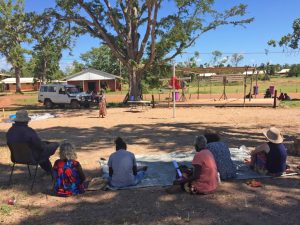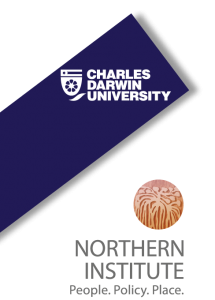A Feasibility Study for a Ramingining Aboriginal Corporation
Funding: The Northern Territory Department of Regional Services and Womens Policy (mid 2013)
Duration: September 2013 – October 2013
Location: Ramingining
Summary:
In 2013 the Ramingining Local Reference Group and other Elders, the Northern Territory Government and FaHCSIA managers in the Nhulunbuy ICC, asked researchers from CDU to research the feasibility of a new Aboriginal Corporation in Ramingining.
The project aim was to engage with Yolŋu cultural authorities, community members in Ramingining and its homelands, and other key stakeholders – to establish a clear vision and potential pathways for the development of a ‘Ramingining Aboriginal Corporation (RAC)’.
The project objectives were:
- To understand and help articulate where the people of Ramingining and homelands see themselves as having come from, their vision for the future, and a clear vision of a local Aboriginal corporation and how this fits with this bigger picture for the Ramingining and surrounding communities.
- To investigate the options in three major areas, roughly: ‘business case’, ‘governance arrangements’ and ‘organisational structure’.
- To make the options clear to key Yolŋu and their families, negotiate possible scenarios and preferred ways forward.
- To develop and facilitate clear ways of communicating the outcomes to the NTG and FaHCSIA and an agreed process for further development of the RAC
As outlined in our ‘Project Plan’, we worked collaboratively with:
- Yolŋu authorities and their families
- Other key stakeholders including government
- Legal and financial advisors
And collected information through:
- Talking with Yolŋu authorities and families, stakeholders and advisors
- Presentations, discussions/dialogue and meetings
- Collecting and analysing stories and artefacts
As we undertook the feasibility study consultations, we:
- Informed, mentored and enhanced the capacity of leaders, individuals and groups of people involved in the project so that they were better able to make decisions about the findings/conclusions/scenarios.


